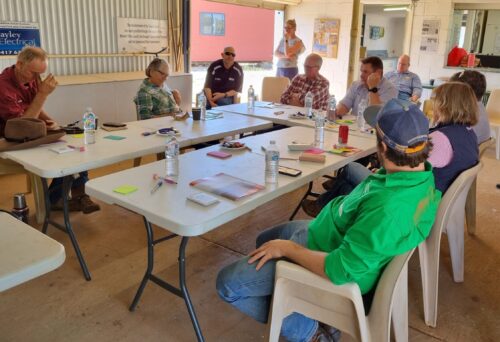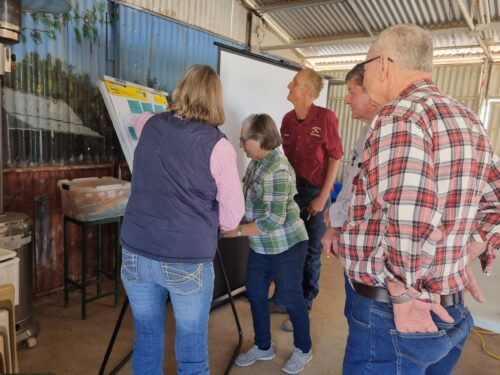Climate Savvy Grazing: Empowering decision-making through climate data
Attendees at the recent Climate Savvy Grazing Decisions workshop came together to learn about the climate drivers relevant to the South West region and to share the methods they use to deal with climate variability.
The day was organised and facilitated by the Department of Agriculture and Fisheries Extension officers.
Featuring Climate Mate John McLaughlin, the event was filled with practical tools and strategies to understand the regional climate drivers better.

Understanding climate variability
To manage risk, you must first understand it, was a theme reinforced in John’s workshop.
The Nebine region, like many parts of Australia, has a high variation in rainfall patterns. During the workshop, attendees gained insights into the specific climatic drivers that shape the region’s rainfall.

Understanding climate drivers and forecasting techniques
As John guided the audience through the relevant climate drivers for the Nebine region, a deeper understanding was developed. As a result, graziers are able to anticipate better, prepare, and manage the risks associated with climate variability.
Unsurprisingly, one of the attendees commented that their “Understanding of the vagaries of climate and its impact on our business” had improved.
Understanding forecasts, especially medium to long-term ones, can add an extra tool to the toolkit.
Another attendee acknowledged, “I didn’t realise climate prediction could impact decisions, even six months in advance, i.e. joining.” This was an excellent, on-ground example where using the correct climate tools can help with on-property decisions.
Strategies for managing climate variability
The day was about more than just understanding climate and using this new understanding to help make grazing decisions. The Department of Agriculture and Fisheries Extension Officers facilitated a discussion about tools and techniques available and what they had seen others using. In doing so, attendees actively discussed and shared their strategies when tackling dry conditions.

As the conversation evolved, a clear message emerged, best summarised by a producer who said they now felt comfortable “Interpreting climate data to enable informed decisions to be made moving forward”. When equipped with data and insights, producers can make more informed decisions regarding livestock management, business management, supplementation, drought preparation and pest management. Climate Mate John McLaughlin summarised this in his equation:
“Accurate forecasts + informed land managers = realised opportunities.”

In summary, the Climate Savvy Grazing Decision workshop wasn’t just an educational session but an opportunity for producers to share their decision-making processes.
To access your relevant region climate calendar, follow the NACP – Climate Calendar link. You will also receive a monthly email with which forecasts you should focus on for your region.